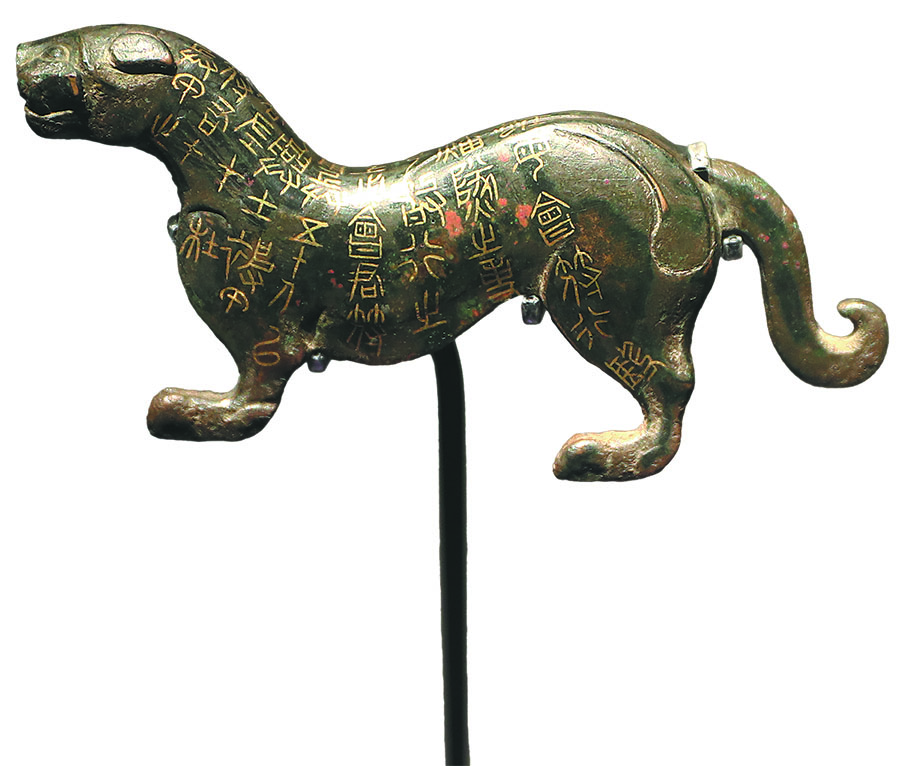A focus on the formative


The Shaanxi History Museum has a collection of more than 1.7 million artifacts, only several thousand of which have been exhibited before. With the opening of the new branch, visitors will have the chance to see more of them, Ren says.
For example, some small ceramic animal figurines of monkeys, camels and pigs, which are believed to have been Han era toys, were previously lost among the many exquisite artifacts in the Shaanxi History Museum's collection, but they finally have their chance to shine at the new museum.
The exhibition also makes a lot of comparisons between the Qin and Han civilizations and their foreign contemporaries. For example, when introducing the standardization of words, Persia's trilingual policy, its simultaneous use of Old Persian, Elamite, and Akkadian during the Achaemenid Empire (550-330 BC), is introduced by way of comparison.
According to Ren, since its soft opening at the end of last year, the museum has welcomed an average of about 10,000 visitors a day.
Two other exhibitions on the art of Qin and Han dynasties, and Qin and Han cities and tombs, will open in May.
"I believe the museum is very important as it explains important characteristics of Chinese civilization using archaeological evidence from the Qin and Han dynasties. Visitors will get the opportunity to understand how Chinese civilization has lasted for such a long time without interruption," Liu says.


















